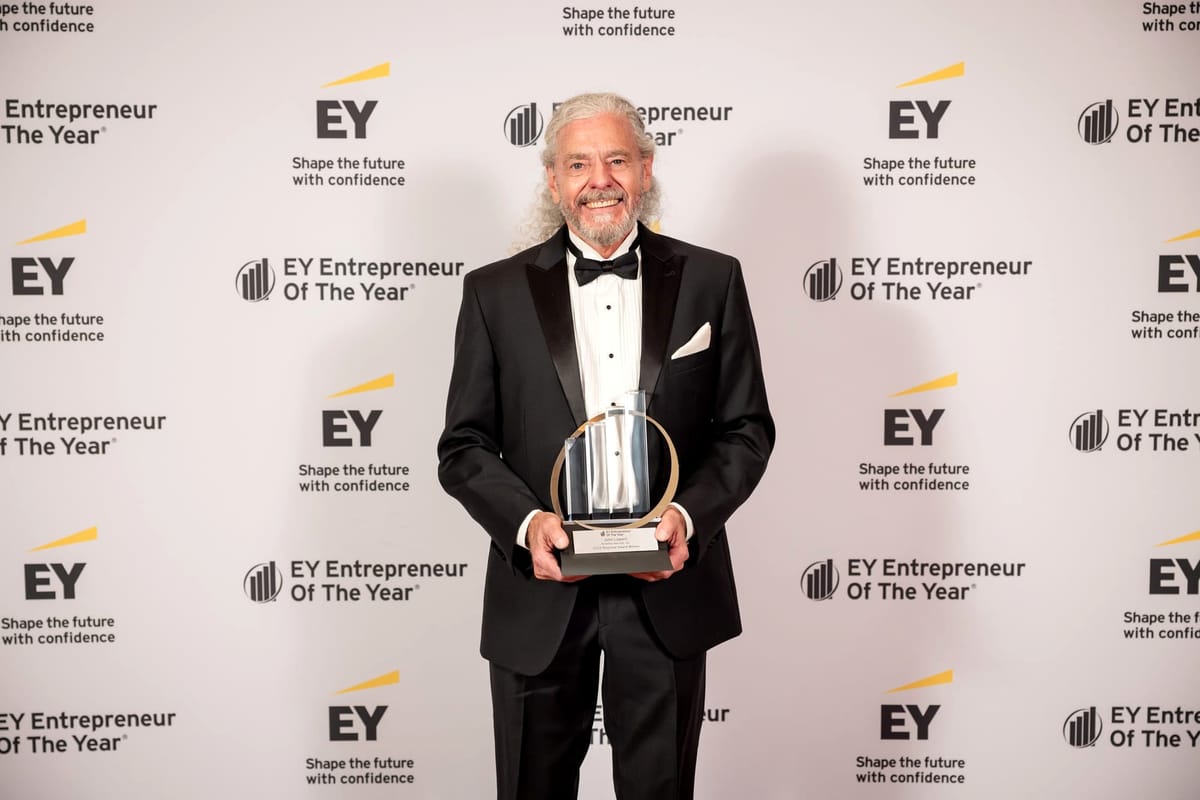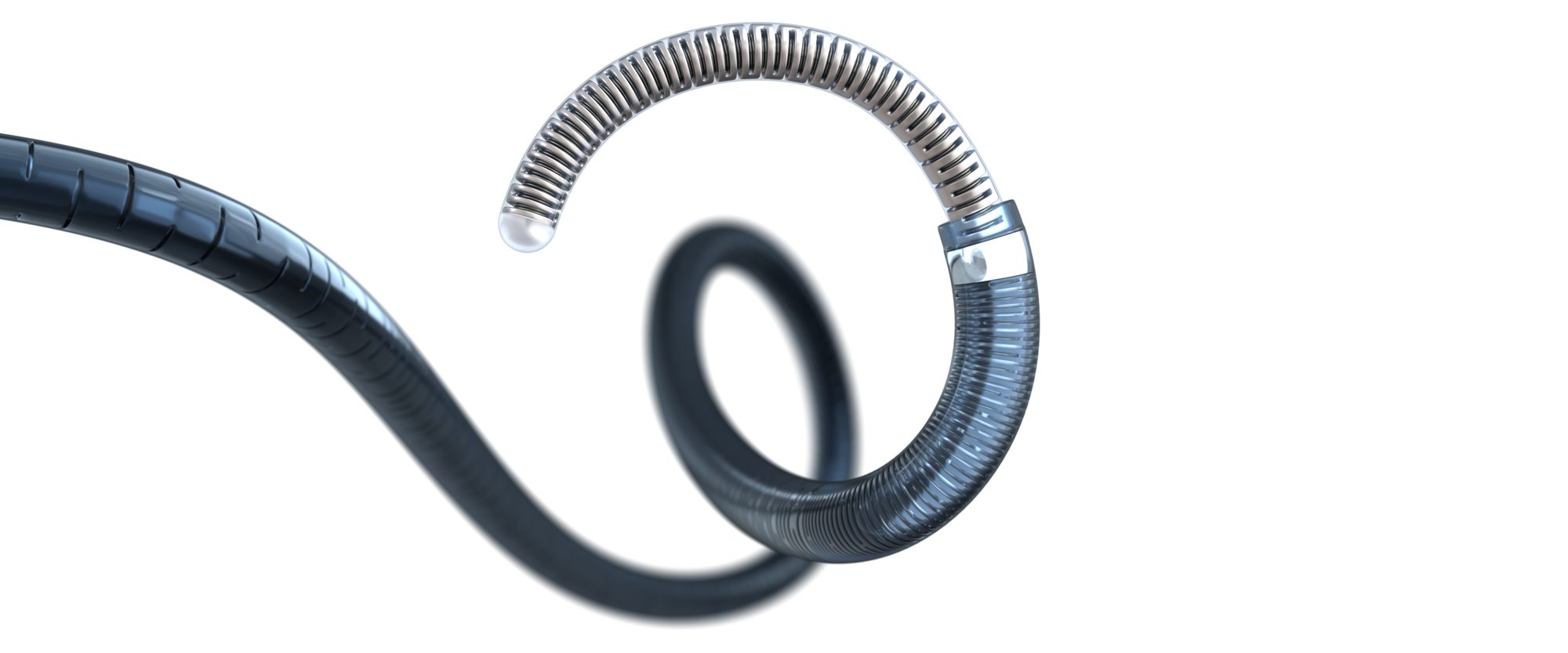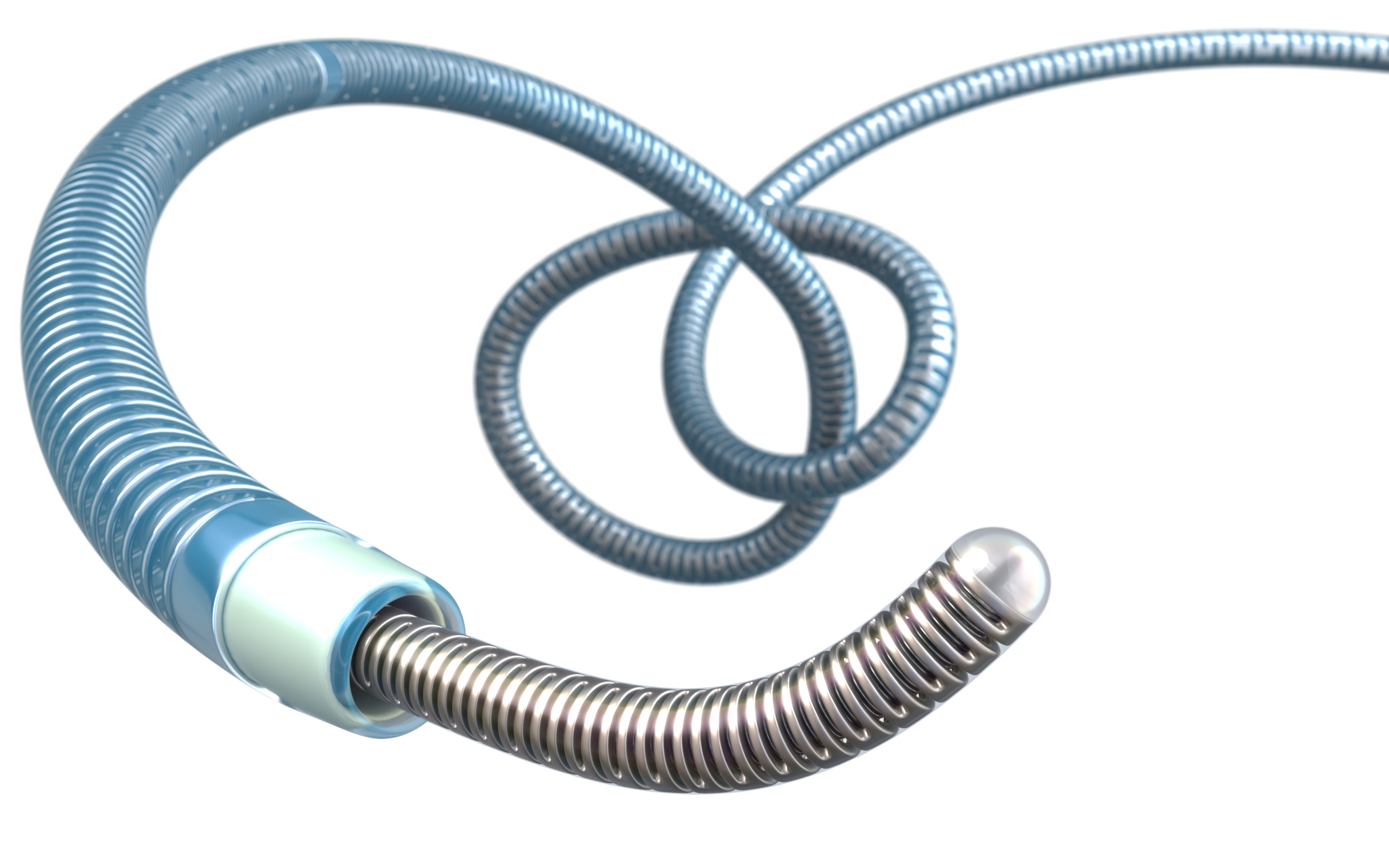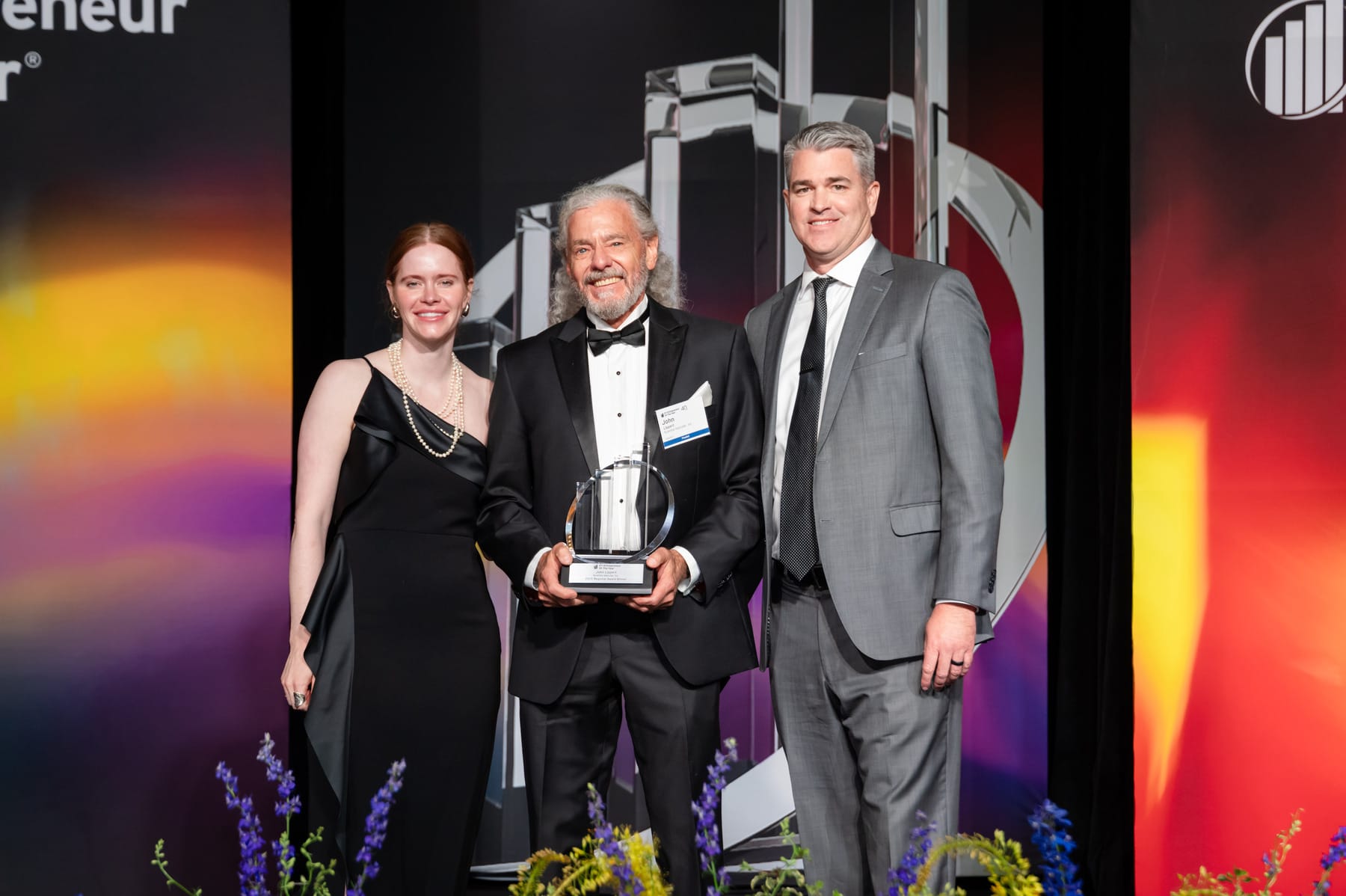

West Valley City, Utah - October 22, 2025
John Lippert calls himself "a loving hippie saving the world." He's also the founder of a company that's shaving critical minutes off stroke treatment times—and in neurology, minutes are everything.
When John Lippert was named a 2025 Entrepreneur Of The Year, it wasn't just that another successful medical device startup was being recognized. It was honoring John’s two-decade obsession with a deceptively simple question: Why are we treating the most complex organ in the human body with tools designed for everything else?
Lippert's answer is Scientia Vascular, a West Valley City, Utah-based company that's pioneering neurovascular access devices built specifically for the brain.
He shared with TechBuzz the impact it is having:
Stroke patients treated with Scientia's guidewires and catheters get care roughly 30 minutes faster than with conventional tools. In stroke treatment, where brain cells die by the millions each minute, that half-hour can mean the difference between full recovery and permanent disability.
Engineering at the Speed of Neurons
At first glance, Lippert fits the engineer archetype: a perfectionist obsessed with micron-level precision. But watch him in the lab or shadowing surgeons in the OR, and a different picture emerges—equal parts healer, teacher, and relentless tinkerer.
The technical breakthrough behind Scientia's products lies in microfabrication. Using a process that removes material from solid nitinol hypertubes, Lippert's team creates microfeatures—rings, interconnected beams, and other structures invisible to the naked eye—that give the devices their unique properties.
Think of it as 3D printing in reverse, but for surgical tools that need to navigate blood vessels narrower than a strand of spaghetti.

These microfeatures deliver what conventional braid-and-coil-reinforced devices can't: superior flexibility without sacrificing support. The design creates a smooth transition from a supportive proximal shaft to a flexible, atraumatic distal tip—medical device speak for "stiff where you need control, gentle where you need to not tear anything."
The customization possibilities are staggering. With thousands of potential variations in microfeature combinations, Scientia can fine-tune flexibility and support with unprecedented precision. Lippert can create 6,000 micro-features in 35 seconds, giving neurosurgeons tools calibrated to the brain's unique, unforgiving anatomy.

From Lizards to Life-Saving Devices
Lippert's path to neurological innovation started, improbably, with reptiles. Growing up in California with dreams of becoming the next Steve Jobs, he sold lizards as a kid and bought his first stock at 10. The entrepreneurial itch was always there.
His first real exit came from Precision Vascular Systems, which left him with capital—and a nagging sense that he'd built something self-serving. "I wanted to do something more," he says, "something that genuinely helped people." Precision Vascular Systems was acquired in 2004 by Boston Scientific.
In 2008, he founded Scientia in a garage in Reno, Nevada. The vision: revolutionize neurovascular medicine through precision engineering and patient-centered design.
Raising money to build delicate brain catheters was predictably brutal. Lippert personally pitched the majority of investors, walking them through a high-stakes narrative that combined bleeding-edge engineering with life-or-death stakes.
Then came 2014's perfect storm—literally. During a critical investor tour, a rainstorm flooded Scientia's facility. The investor passed. But Lippert's insurance covered the damage, giving him runway to pivot. That pivot led Scientia to focus specifically on guidewires for neurology, perfectly timed with the field's explosive growth.
By 2013, the company had already relocated to a state-of-the-art facility in West Valley City, Utah, tapping into the region's growing medtech talent pool. Under Lippert's leadership, what started in a garage evolved into a company redefining standards for an entire industry.
Lippert's technical innovations extend beyond the products themselves. For FDA approval, he pioneered a testing device so novel it became the industry standard. It was a meta-innovation: inventing the tool to prove his tools worked.
Every product is designed with the brain's anatomy as the north star—a seismic departure from the "one-size-fits-all" approach that dominated neurovascular intervention for decades. Before Scientia, neurosurgeons made do with devices originally designed for cardiac procedures. It was like performing brain surgery with tools meant for plumbing.
Culture as Competitive Advantage
Innovation at Scientia isn't just about microfabrication specs and FDA submissions. It's embedded in the company's DNA.
Lippert maintains close relationships with surgeons, sometimes visiting hospitals to understand challenges firsthand. He hires young engineers straight out of college, mentoring them and fostering unusually low turnover. "Innovation Day"—where employees pitch product ideas—isn't a feel-good perk. It's strategic culture-building that treats every team member as a potential source of the next breakthrough.
This people-first approach creates a feedback loop: engaged employees drive innovation, which improves patient outcomes, which attracts top talent, which accelerates innovation further.
Building the Penthouse
Looking ahead, Lippert is preparing to launch disease-specific, matched catheter and guidewire pairs—what he describes as "building the penthouse after laying the foundation."
The goal is perfect harmony between micro-engineering and anatomy, expanding possibilities for both surgical and pharmaceutical interventions in the brain. It's an audacious vision: making the brain as accessible to medical intervention as any other organ, without sacrificing safety.
The market opportunity is massive. Stroke is the fifth leading cause of death in the U.S. and a leading cause of disability. The global stroke management market is projected to reach billions in coming years, driven by aging populations and rising stroke incidence.
But for Lippert, it's never been just about market size. It's about the grandmother who walks out of the hospital instead of leaving in a wheelchair. The young parent who returns to work instead of needing round-the-clock care.
The Hippie Who Saves Brains
Being named an Entrepreneur Of The Year acknowledges both the business acumen that grew Scientia and the lives changed along the way. It's a rare combination: technical virtuosity, entrepreneurial grit, and genuine empathy.
In an era when "mission-driven" has become startup cliché, Lippert lives it. He's an engineer who shadows surgeons. A CEO who mentors junior engineers. A perfectionist who describes himself as a hippie.
At the intersection of engineering, entrepreneurship, and empathy, his vision is unambiguous: a future where every stroke patient has access to tools purpose-built to save their brain, their body, and ultimately, their life.
Thirty minutes faster might not sound revolutionary. But in the vasculature of the brain, where every second counts, it's everything.

About EY Entrepreneur Of The Year
Founded in 1986, Entrepreneur Of The Year has celebrated more than 11,000 ambitious visionaries who are leading successful, dynamic businesses in the US, and it has since expanded to nearly 60 countries globally. The program honors many different types of business leaders for their ingenuity, courage and entrepreneurial spirit, and celebrates original founders who bootstrapped their business from inception or who raised outside capital to grow their company; transformational CEOs who infused innovation into an existing organization to catapult its trajectory; and multigenerational family business leaders who reimagined a legacy business model to fortify it for the future.
The EY Entrepreneur Of The Year Mountain West program includes Alaska, Colorado, Idaho, Montana, Oregon, Utah, Washington and Wyoming. As a 2025 regional award winner, John Lippert goes on to be considered for the Entrepreneur Of The Year National Awards, set to be presented in November at the annual Strategic Growth Forum®, one of the nation’s most prestigious gatherings of high-growth, market-leading companies.
The Entrepreneur Of The Year National Overall Award winner will then represent the US as they compete for the World Entrepreneur Of The Year® Award in May 2026.
Learn more at scientiavascular.com.

